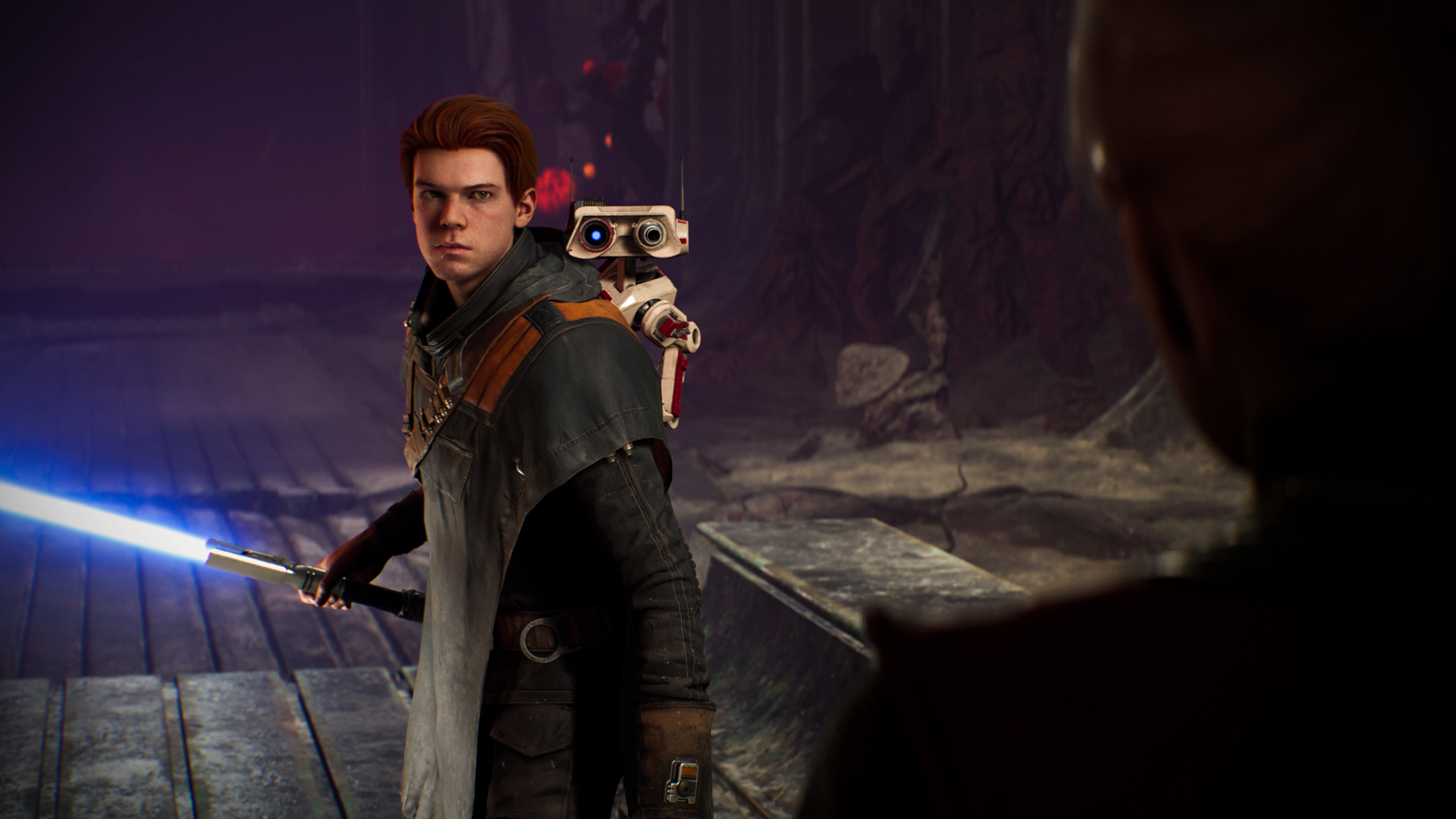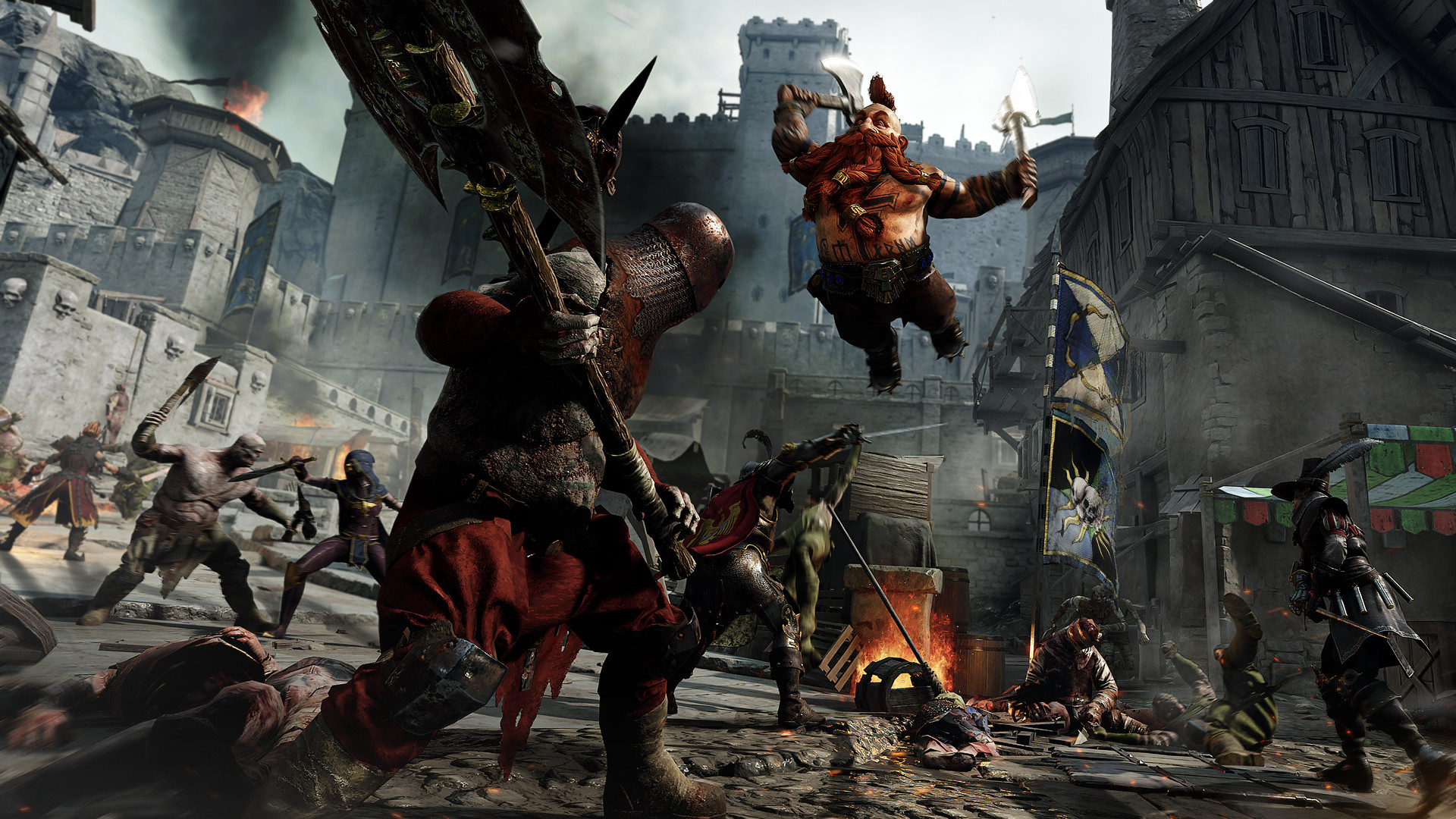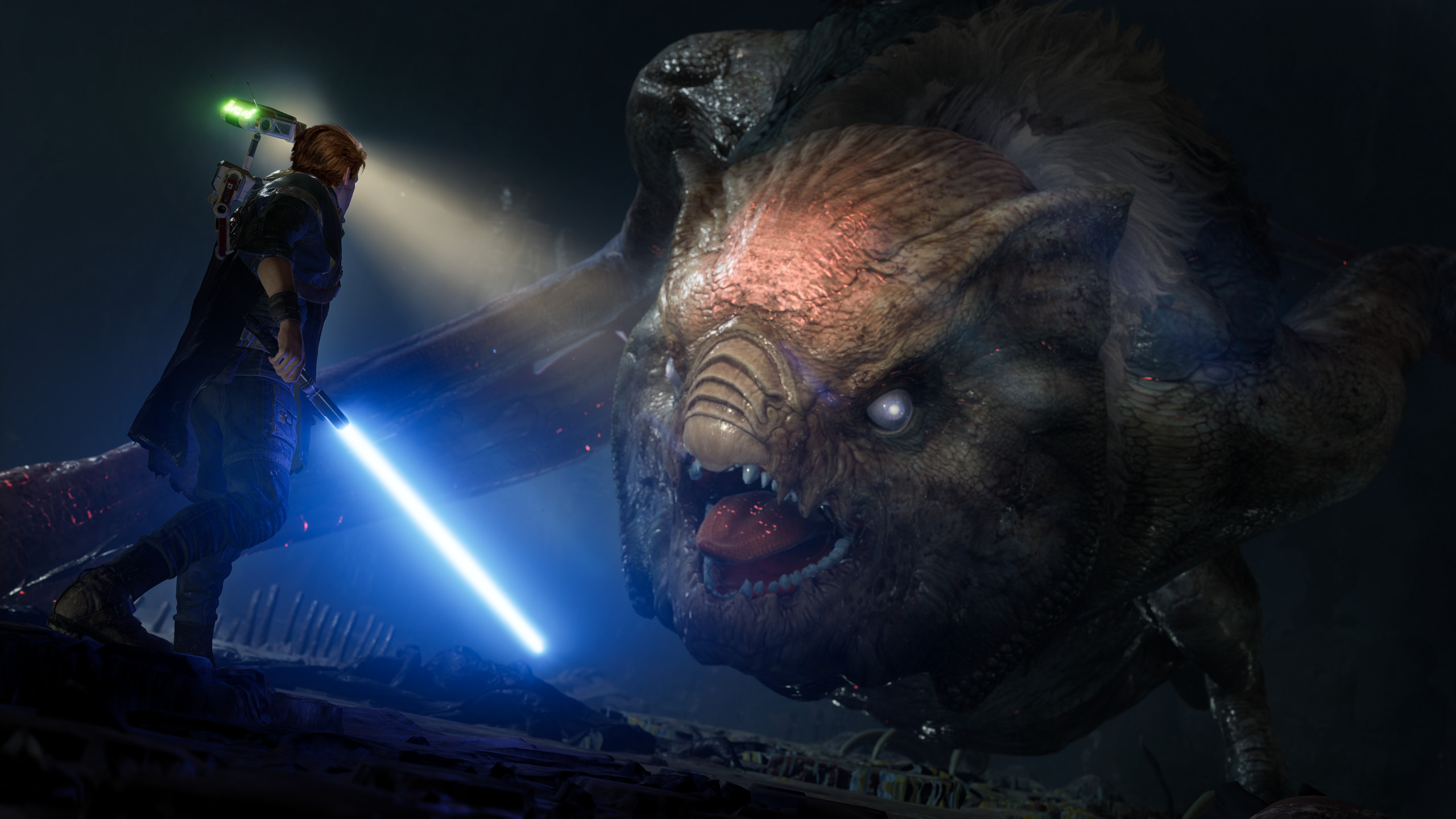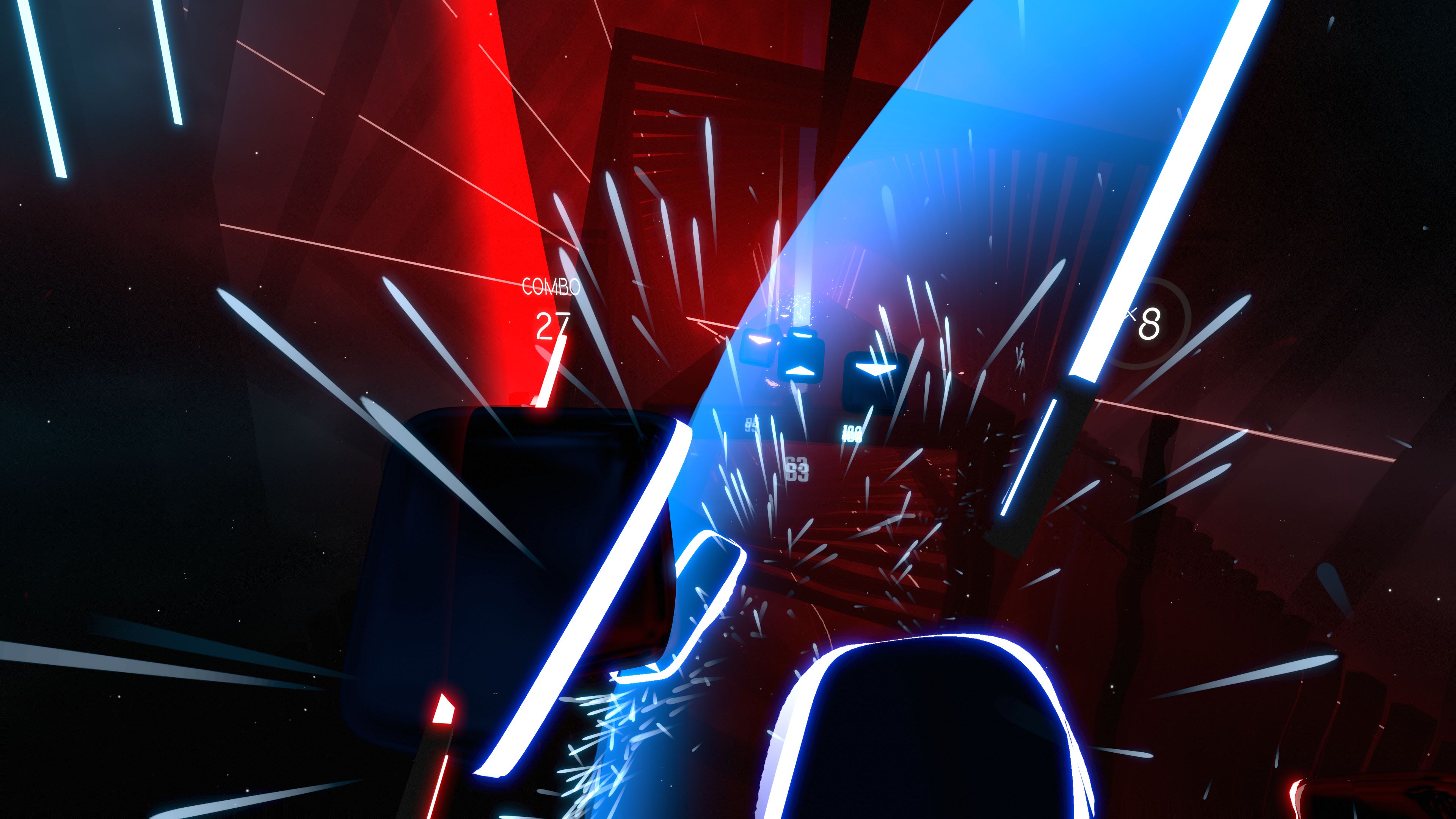What Star Wars can learn from Warhammer
There should be 40K Star Wars games.

We should be swimming in Star Wars games. EA has released three in the six years it's had the license, to a mostly ambivalent reception. That's fewer than the number of films that have released since. EA's been cautious, but the issues are larger than one publisher. What Disney really needs to do is take a page out of Games Workshop's book and start throwing that license to anyone.
A new Warhammer game is never far away. Across every platform, the grimdark and fantasy battlefields of Warhammer and Warhammer 40K have been recreated time and time again. Some of them stink worse than ork armour, but there have been so many flung against the wall that some of them have stuck—a lot of them, in fact.
Games Workshop is not entirely laissez faire with the license, however, and there are plenty of constants. The tone is largely consistent, regardless of developer, and we're yet to see a Warhammer 40K dating sim—a source of much despair—but within the confines of the very well-defined universes, developers have conjured up a diverse set of games.

Even just within the strategy genre, there's very little repetition, aside from sequels. Relic's Dawn of War series and Creative Assembly's Total War: Warhammers have been two of the high points, both of which lean heavily on their respective tabletop games, but with dramatically different results. Developers have also found interesting ways to fit Warhammer around the genre, like Gladius, the 40K 4X game, which strips out diplomacy and surprisingly makes it work.
Beyond strategy, it's aped Left 4 Dead with Vermintide, let you play as a one-man-army in Space Marine, and both fantasy and 40K universes have been given the action-RPG treatment just recently. All of this has sprouted, predominantly, from two games, which increasingly seem to be dwarfed by their videogame adaptations.
While EA has a lot of resources, sticking Star Wars with one publisher—excluding the Lego and mobile games—is never going to generate the unexpected or novel interpretations. There's a massive universe out there that could be used as the foundation for any kind of game, but the most exciting thing EA's done with it is let Respawn make another Jedi action romp with an Archie Andrews impersonator that, at times, feels vaguely like Dark Souls. I'm enjoying it, but I'll have forgotten it next year.

Games Workshop might appear to have an advantage in that it has plenty of tabletop games to adapt, giving us things like the mediocre Space Hulk and much better Battlefleet Gothic Armada, but so does Star Wars. Indeed, tabletop gaming is where Star Wars is thriving at the moment. There are RPGs, wargames, grand strategy games and, my personal favourite, Star Wars Armada. They're all published by Fantasy Flight Games, though the vast gulf between tabletop and videogame development means I'd be very wary of taking that as evidence that EA should be churning out just as many. What it is evidence of, however, is a hunger for Star Wars games that EA seems unable to sate.
The biggest gaming news, reviews and hardware deals
Keep up to date with the most important stories and the best deals, as picked by the PC Gamer team.
One of Disney's big shake-ups when it snatched up Star Wars was the obliteration of the Star Wars Expanded Universe. It felt like an attempt to assert some control over its new property, but now it needs to ease up. I look at Nintendo letting Ubisoft make a Mario XCOM-like or signing off on Cadence of Hyrule, taking these venerable franchises and characters and plonking them in unlikely places, and wish EA and Disney could have taken similar chances.
This is a more recent development, too. 2011's Kinect Star Wars was rubbish, sure, but that Galactic Dance-off mode was still infinitely more appealing than another story about some Jedi going off to find themselves and maybe save the day. It's got nothing on Beat Saber, though, unofficially the best Star Wars game.

Clearly I specifically want more Star Wars rhythm games, but more broadly I think the route to making Star Wars games compelling lies with indie developers, or at least smaller teams, that aren't under pressure to make a big open world or live service game. Not that either of those things automatically preclude a game from being good, but everyone aiming for the same thing is simply a bit dull. Respawn did actually avoid following those trends, thankfully, but Fallen Order remains fairly conservative all the same.
At the very least, a developer that didn't think an alien or, god forbid, another female protagonist would be too bold would be very welcome, and that ain't Respawn. As much as the thought of Disney adopting Games Workshop's model when it comes to the license, at least in regards to who it lets work on it, is an appealing one, even that is possibly too restrained. Star Wars is ancient now, practically a boomer, and could do with a lot more voices contributing to it and taking it in directions as weird as possible.
Tyler wrote that Jedi: Fallen Order feels like EA's last chance to prove it deserves Star Wars, and while it's been well-received, I can't help but feel like it's already too late. The new trilogy is almost over, and while the popularity of Star Wars will undoubtedly continue, EA's complete inability to take advantage of the resurgence of Star Wars excitement has already proved that it's a poor curator. It's time to let everyone else take a crack at it. Unfortunately, that's not going to happen until 2023, when the deal with EA expires.

Fraser is the UK online editor and has actually met The Internet in person. With over a decade of experience, he's been around the block a few times, serving as a freelancer, news editor and prolific reviewer. Strategy games have been a 30-year-long obsession, from tiny RTSs to sprawling political sims, and he never turns down the chance to rave about Total War or Crusader Kings. He's also been known to set up shop in the latest MMO and likes to wind down with an endlessly deep, systemic RPG. These days, when he's not editing, he can usually be found writing features that are 1,000 words too long or talking about his dog.

